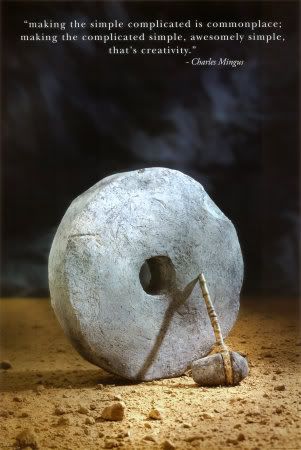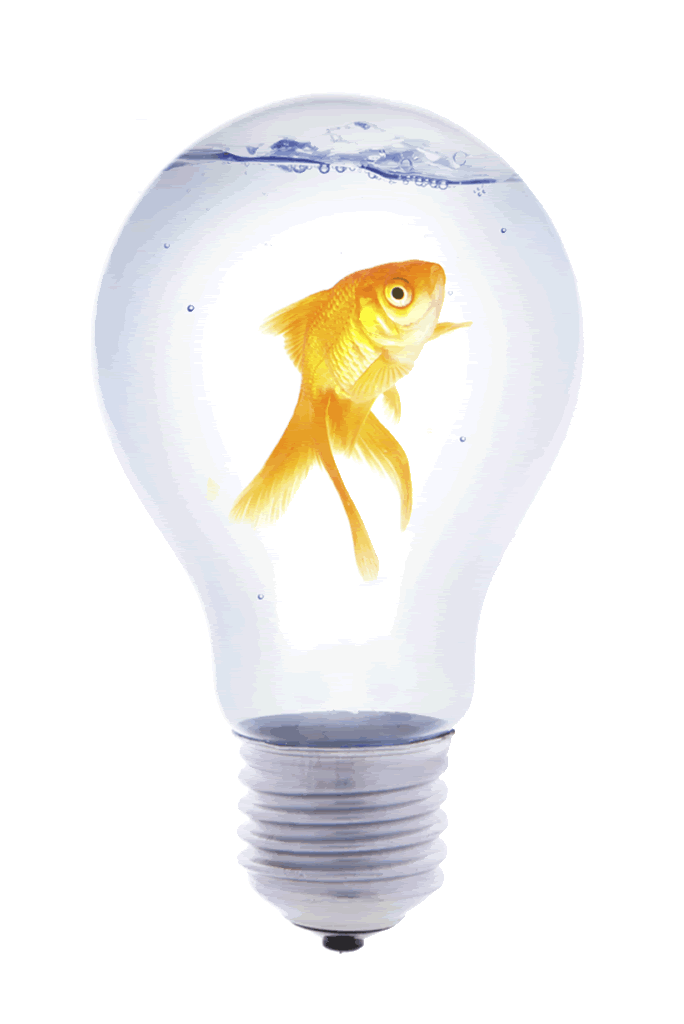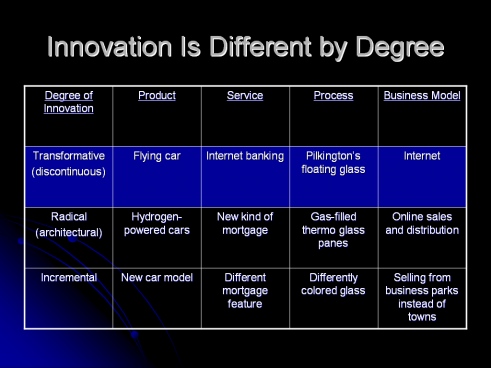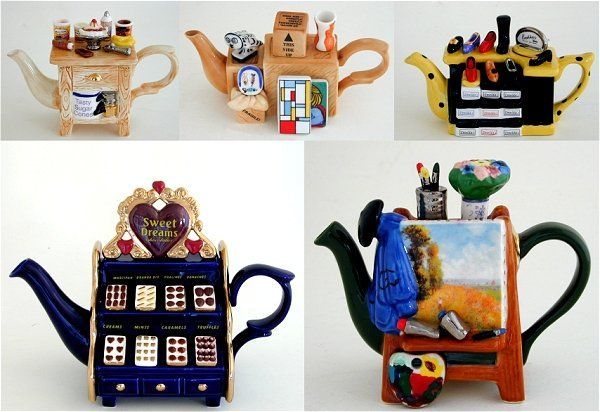Creativity is a mental and social process involving the generation of new ideas or concepts, or new associations of the creative mind between existing ideas or concepts. An alternative conception of creativeness is that it is simply the act of making something new. From a scientific point of view, the products of creative thought are usually considered to have both originality and appropriateness. (From Wikipedia. )


Innovation means a new way of doing something. It may refer to incremental, radical, and revolutionary changes in thinking, products, processes, or organizations. A distinction is typically made between Invention, an idea made manifest, and innovation, ideas applied successfully. In many fields, something new must be substantially different to be innovative, not an insignificant change, e.g. in the arts, economics, business and government policy.
In economics the change must increase value, customer value, or producer value. The goal of innovation is positive change to make someone or something better. Innovation leading to increased productivity is the fundamental source of increasing wealth in an economy.


Invention is the discovery or creation of a new configuration, composition of matter, device, or process. Some inventions are based on pre-existing models or ideas. Other inventions are radical breakthroughs which may extend the boundaries of human knowledge or experience. Inventions that get out into the world are innovations, and may be a major breakthroughs or of minor and incremental impact. The effects can also be in between these two extremes. An invention that is novel and not obvious to those who are skilled in the same field may be able to obtain the legal protection of a patent. There is also a cultural invention which is an innovative set of useful social behaviors adopted by people and passed on to others. (From Wikipedia.)





No comments:
Post a Comment